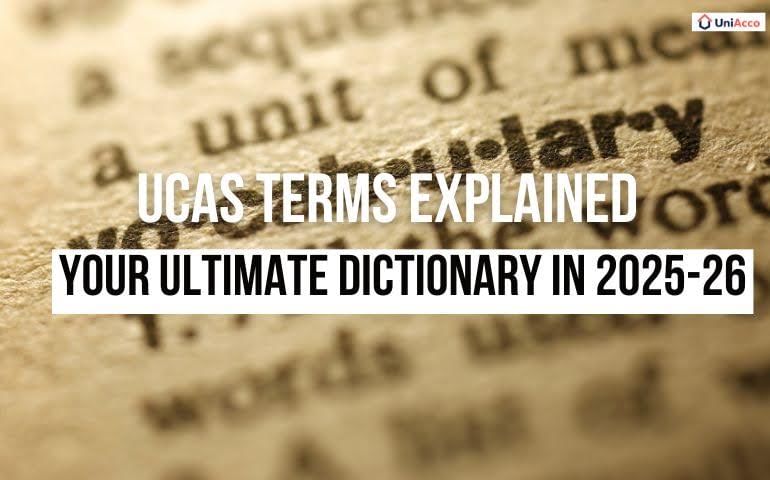Did you know that English is the most extensively learned language, with an approximate 1.5 billion learners, and the second-most widely spoken language in the world, behind only Mandarin Chinese? It is not surprising, however, that the dictionary contains a plethora of new English words with meanings. From non-English terms like teriyaki to abbreviated phrases like ‘LOL,’ they are all part of today’s English language. On that front, we’ve created a list of 30 new words in English, along with their definitions, that we believe will be useful to you in the long run.
List Of 30 New English Words With Meanings
When is a new word added to the dictionary? When a particular word is used frequently and is universally understood to indicate the same thing, it is added to the English language. You must already be aware of the fact that several English slang terms, such as “LOL” and “banana bread,” have lately been introduced to the dictionary. You’ll learn a lot more new English words with meanings and sentences in this article, which will gradually help you build up your vocabulary.

1. Pronoid
A person who experiences pronoia, the belief that people are conspiring to do them good.
Sentence: That pronoid dude set me straight while assuring me that there are no conspiracies.
2. Efface
To eliminate or make indistinct by or as if by wearing away a surface.
Sentence: I would be an incredibly happy person if I could efface all of my painful memories.
3. Jaded
Apathetic or bored after experiencing an excess of something.
Sentence: Henry is a little jaded after spending over 24 hours on a flight and says he would never fly again.
4. Naivete
Lack of worldliness & sophistication.
Sentence: Danielle’s naiveté led her to assume the stranger would reimburse the money she lent him.
5. Quisling
A traitor who aids an enemy force invading their country.
Sentence: When the British arrived to take over their land, the quisling backed them.
Note: While Quisling is one of the new English words with meanings, it is also among the most difficult words in the English language.
6. Thirstry
Showing a strong desire for attention, approval, or publicity.
Sentence: Simran had a thirstry for fame.
7. Zoodle
A spiralized strand of zucchini that is occasionally used instead of pasta.
Sentence: The zoodles were prepared early in the day, wrapped in paper towels, and placed in the refrigerator.
8. MacGyver
Making or repairing (an object) in an innovative or improvised manner with whatever materials are available.
Sentence: When his game wasn’t really up to snuff in the first two rounds, Woods was able to MacGyver his way to making the cut.
9. Deepfake
A picture or video that has been effectively changed to portray someone as doing or saying something that they did not actually do or say.
Sentence: Deepfakes can be convincing enough to endanger democracy.
10. Broigus
A quarrel or feud.
Sentence: The schism with his father grew into a family broigus.
11. Awedded
Overcoming or healing from anger, lunacy, or suffering.
Sentence: Susan awedded and apologised for her behaviour.
Did you know? The word Awedded is one of the recent new English words with meanings added to the Oxford dictionary
In the year 2020.
12. Shero
A woman who is loved or idolised for her bravery, exceptional achievements, or virtuous traits.
Sentence: This local shero was someone I wanted to meet down with and discuss her past.
13. Promulgate
To broadcast or announce.
Sentence: The Internet has been used extensively to promulgate her views.
14. Vicissitude
A change in situations or fortune that is unwanted or undesirable.
Sentence: He went through a number of significant social vicissitudes throughout his lifetime.
15. Dof
Stupid or Uninformed.
Sentence: They seem rather dof to me in terms of their overall strategy.
16. Angst
An ongoing sense of anxiety about a small matter.
Sentence: She channelled her adolescent angst into reading and becoming a goth.
17. Awesomesauce
Excellent or fantastic.
Sentence: The ladies had an awesomesauce weekend in Vegas even though it ended abruptly.
18. Quotidian
Something that happens of daily occurrence.
Sentence: So far, so fairy tale, yet the narrative soon returns to the quotidian specifics of village life.
19. Pejorative
Express disapproval.
Sentence: Despite being neutral, the detective gave the suspect a pejorative description.
20. 7. Incumbent
A person who has a position of authority at the moment.
Sentence: By a wide margin, he beat the incumbent governor.
21. Crudball
An unsavoury character.
Sentence: My neighbour is a crudball for complaining about every aspect of my yard.
22. Schmuko
A stupid person.
Sentence: I have a question, but I’m terrified of seeming like a schmuck since I don’t know the answer.
23. Swellegant
Elegant and trendy. A swell and elegant blend.
Sentence: A tux makes you appear really swellegant.
24. Phlegmatic
Displaying scant or no emotion.
Sentence: The British persona is frequently described as phlegmatic.
25. Segue
To transition without halt from one subject, song, etc., to another.
Sentence: This is excellent, if abrupt, segue to eating healthy foods if you have been following a diet heavy in processed foods.
26. Blert
A weak or useless person, a cowardly person
Sentence: I’m desperate to find a new position where there are no blerts.
27. Comp
To provide something for free as a favour.
Sentence: Because we had to wait so long for our meal, the restaurant comped our supper.
28. Amotivation
Lack of motivation or aim.
Sentence: Because he is amotivated, John hasn’t sought a job in weeks.
29. Idiosyncratic
Something peculiar to a person
Sentence: His teaching techniques may be idiosyncratic but they work just fine!
30. Largesse
Kindness or generosity in showering gifts or money.
Sentence: After he lost his work, he relied on the largesse of friends.
To Conclude
Learning new English words with meanings is rather useful and comes in handy at various moments for a student like in interviews, entrance tests, recruitments, and more. Many countries provide visas after passing English-based citizenship and other exams. Many areas or courses, such as bank examinations, SSC, IBPS, and so on, require basic English proficiency.
FAQs
1. What does “deep fake” actually mean?
A “deep fake” is a photo or video that has been digitally altered to show someone saying or doing something they didn’t actually say or do.
2. What exactly does the word “jaded” mean?
The term “jaded” refers to a state of ignorance or boredom that develops after having too much of something.
3. What are English grammar words with different meanings?
English words frequently have numerous meanings depending on the context, such as “bank,” which can refer to both property next to a river and a financial organisation.
4. What are the 9 types of English words?
Nouns, pronouns, verbs, adjectives, adverbs, conjunctions, prepositions, interjections, and articles are among the nine types of English words or components of speech.
5. What is so special about English?
English is special because of its widespread use as a second language and its contribution to world culture and communication. Its adaptability and the use of terms from different languages further illustrate its dynamic character.
Thank you for taking the time to read this blog post on 30 New English Words With Meanings. If you’d like to read more, check this out –
- Make The Most Of Weather Seasons In The UK
- Upgrade Your Wardrobe: Trendy Charity Shops in London!
- The Best Pubs In Birmingham To Chill On A Weekend!
Looking for student accommodation abroad?















0 Comments